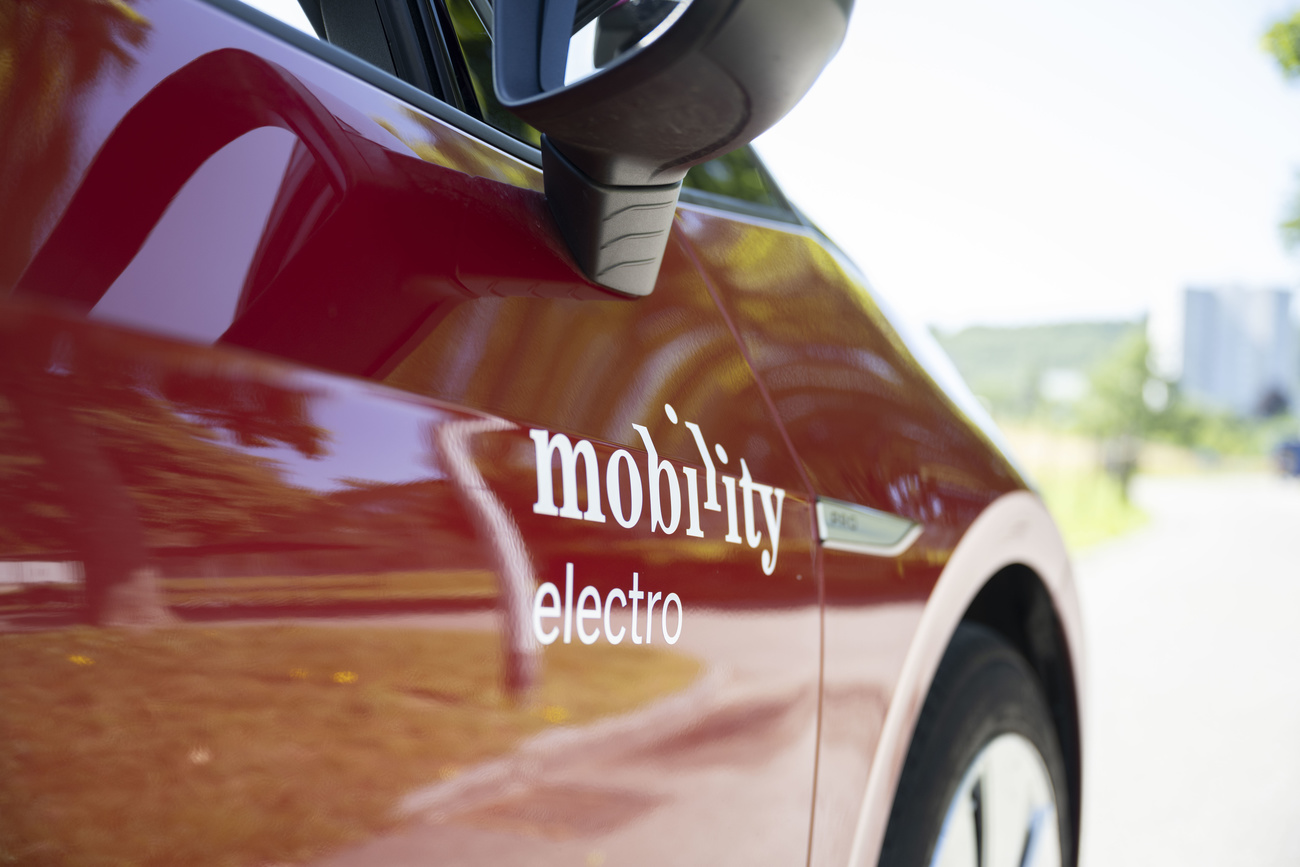
Pilot project tests power backup from electric cars

An innovative pilot project testing the potential of electric cars to stabilise the power grid has been launched in Switzerland.
For one year, the power of 50 electric vehicles will be fed back into the grid from their batteries when they are not running, car-sharing company Mobility which leads the project said on TuesdayExternal link.
The “V2X Switzerland” project was launched in Bern, bringing together a total seven companies including car maker Honda. It also has support from the Swiss Federal Office of Energy and the Federal Technology Institute Zurich ETH), according to the press release.
Mobility is providing 50 “Honda e” electric cars for this pilot project, spread over 40 locations across the country. According to the car-sharing company, this is the first large-scale test of its kind.
The purpose of the test is to study for a year how electric cars can be used as batteries to fill power shortages and enhance grid stability. Mobility says the project is designed in such a way that, if successful, it can be directly transformed into a permanent operation.
The idea behind the project is that the electric cars do not only consume power but can also feed it back, especially since they are often stationary. Grid operators and households can use the power from the electric cars during peak hours, while the cars can be fully recharged during the day – when the sun is shining – at a lower rate, explains Mobility. It says energy is fed back into the grid for only 15 minutes, so that there is always a sufficient reserve for journeys.
Swiss Environment Minister Simonetta Sommaruga welcomed the project, saying it would help Switzerland to free itself from fossil fuels.
Mobility has a fleet of 3,010 vehicles parked in 1,560 different places and 242,300 clients.

In compliance with the JTI standards
More: SWI swissinfo.ch certified by the Journalism Trust Initiative




























You can find an overview of ongoing debates with our journalists here . Please join us!
If you want to start a conversation about a topic raised in this article or want to report factual errors, email us at english@swissinfo.ch.